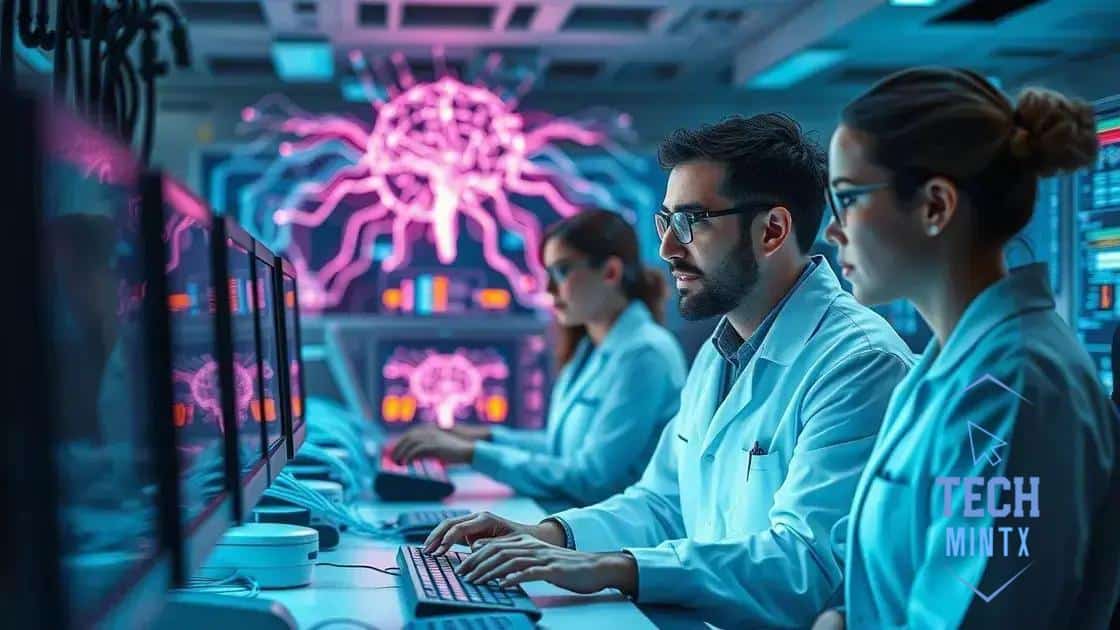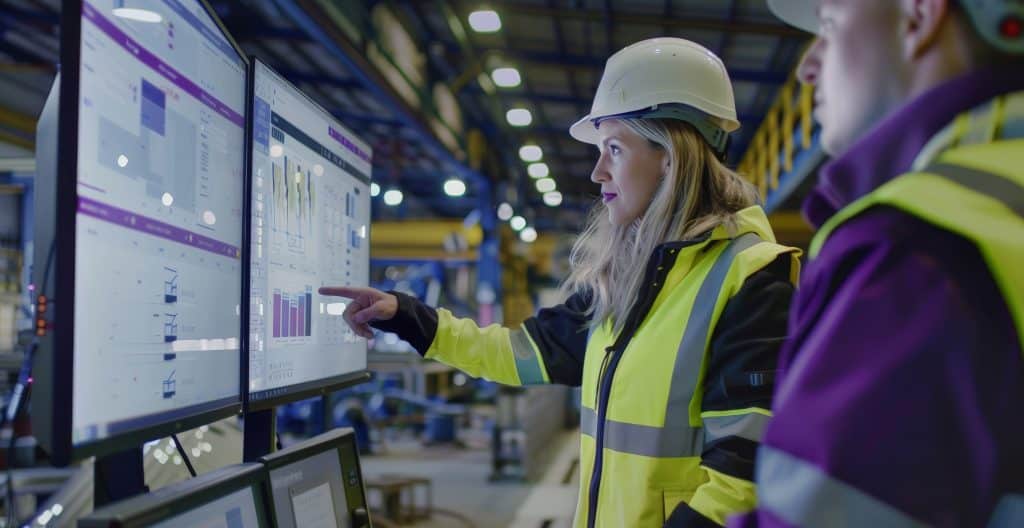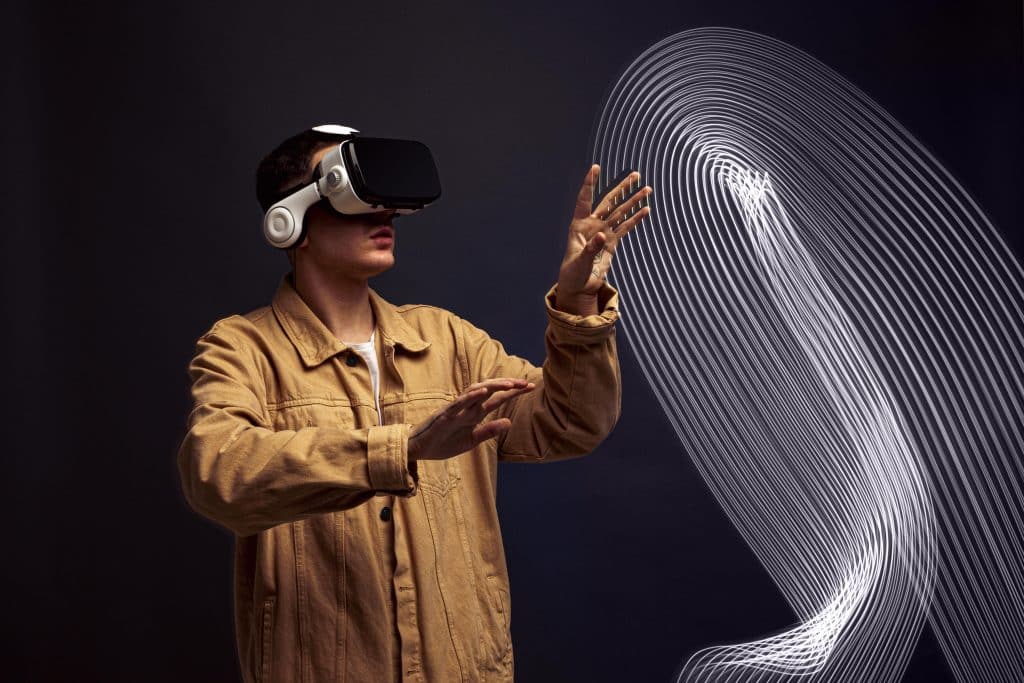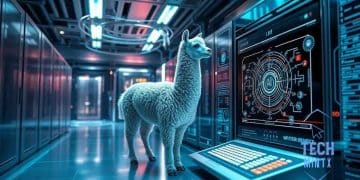Neural tech moves beyond labs in 2025

Neural tech moves beyond labs in 2025, significantly impacting healthcare, finance, and transportation by improving diagnostics, enhancing fraud detection, and enabling autonomous vehicles.
Neural tech moves beyond labs in 2025, and it’s set to change the way we interact with technology. Imagine a world where machines can think and learn like us—sounds fascinating, right? Let’s dive deeper into this revolution.
Understanding neural technology
Understanding neural technology is the first step in grasping its vast potential. This innovative field combines neuroscience with engineering, reflecting how our brains process information and apply it within machines. With advances in neural tech, we can unlock new capabilities in artificial intelligence.
Key Concepts of Neural Technology
At its core, neural technology seeks to understand how the brain functions and replicate those processes. This allows computers to learn from experience, making decisions based on patterns just like a human would.
Applications of Neural Tech
- Healthcare enhancements: From diagnostic tools to personalized treatment plans, neural tech is transforming patient care.
- Smart devices: Home appliances and smartphones are becoming more intuitive thanks to advances in neural networks.
- Autonomous vehicles: Self-driving cars rely heavily on neural tech to navigate and make real-time decisions.
Neural technology also plays a critical role in expanding our understanding of mental health. Researchers are developing tools to better diagnose conditions by analyzing brain activity. This has the potential to lead to tailored therapeutic interventions.
As we explore further into neural tech, the ethical implications become crucial. Issues such as privacy, consent, and data security must be addressed as we integrate these systems into our daily lives. With careful thought and innovation, we can harness the power of these technologies responsibly.
With so much happening in the field of neural tech, staying updated is essential. The journey is exciting, and understanding the fundamentals will prepare us for incredible advancements in technology.
Impact on various industries

The impact on various industries from neural technology is profound and far-reaching. This innovation is changing how businesses operate and interact with their customers. Many sectors are experiencing transformations that enhance efficiency and drive growth.
Healthcare Revolution
One industry that has embraced neural technology is healthcare. By utilizing advanced algorithms, professionals can analyze medical data more effectively. This means faster diagnoses and personalized treatment plans for patients.
- Improved diagnostic accuracy through machine learning.
- Robotic surgeries guided by real-time data.
- Telehealth services enhanced with AI support.
Neural tech also aids in predicting disease outbreaks, leading to timely public health responses. This can save lives and resources, showcasing the critical importance of these advancements.
Finance and Banking
The finance sector is undergoing a similar transformation. Neural networks are used to detect fraudulent activities by analyzing transaction patterns. This allows banks to safeguard customers’ information effectively.
Additionally, personalized banking services are on the rise. With neural technology, banks can offer tailored financial advice based on individual spending habits and preferences. Customers benefit from experiences that cater to their unique needs.
Retail is another area where neural technology is making a mark. By employing data from customer interactions, stores can predict trends and manage inventory more efficiently. This leads to a smoother shopping experience for consumers.
As we explore these impacts further, the challenges faced by industries must also be acknowledged. Adapting to new technologies requires training and resources, yet the potential benefits are enormous. Every day, more organizations are investing in neural tech to stay competitive.
The integration of neural tech across different industries emphasizes its versatility. Businesses must remain agile and ready to embrace these changes to thrive in the evolving marketplace.
Challenges faced by developers
The challenges faced by developers in the field of neural technology are significant and diverse. As they work to improve and refine these systems, several hurdles arise that can impact progress.
Complexity of Neural Networks
Neural networks, while powerful, are inherently complex. Understanding how these models learn and adapt can be quite challenging. Developers must grasp intricate mathematical concepts and algorithms to build effective models.
Data Availability and Quality
Another major challenge is obtaining quality data. For neural networks to function optimally, they require large volumes of data that is both accurate and relevant.
- Accessing such datasets can be difficult due to privacy regulations.
- Data might be biased, leading to skewed results.
- Ensuring data diversity is crucial for minimizing algorithmic bias.
Without quality data, the performance of neural networks is compromised. Developers must navigate these issues carefully and often spend a considerable amount of time preparing datasets for training.
Ethical Considerations
Ethical dilemmas also plague developers in this field. As they advance neural technology, they must consider the implications of their work. Questions regarding consent, data usage, and the potential for misuse are crucial.
Building systems that are not only efficient but also adhere to ethical standards requires ongoing dialogue among stakeholders. Developers must ensure transparency to build trust in their technologies.
As developers face these challenges, collaboration among teams becomes essential. Sharing knowledge and resources can lead to breakthroughs and create an environment conducive to innovation. While the road ahead may be fraught with obstacles, the potential of neural technology keeps the pursuit alive.
Future trends in neural tech

The future trends in neural tech are exciting and full of potential. As this technology continues to evolve, we can expect significant advancements that will shape various aspects of our lives.
Increased Integration with AI
One prominent trend is the greater integration of neural tech with artificial intelligence. This combination will create systems that can learn from vast amounts of data and adapt in real-time. Businesses will use these systems for a variety of applications, from customer service chatbots to advanced data analysis tools.
Expansion in Robotics
Another area of growth is in robotics. As neural technology develops, robots will gain enhanced cognitive abilities. This means they will perform more complex tasks independently. For example, robots will be able to learn from their environment and improve through experience, leading to safer and more efficient operations.
- Improved navigation systems for drones.
- Robots that can assist in healthcare settings.
- Smart factories using collaborative robots.
Neural tech will also impact entertainment, enabling more personalized experiences. Think of video games that adapt to your playing style or films that change based on viewer preferences. This level of personalization will offer new ways to engage audiences effectively.
Healthcare Innovations
In healthcare, the future promises groundbreaking innovations. Neural technology will enhance diagnostics, allowing for earlier detection of diseases. This capability can lead to more effective treatments and better patient outcomes.
Wearable devices powered by neural tech will monitor health metrics continuously, providing data to healthcare professionals in real-time. This proactive approach to health management will transform patient care.
As we navigate the next decade, ethical considerations will grow in importance. Developers and policymakers must work together to ensure responsible use of neural technology. This will build trust and allow society to embrace these innovations confidently.
The evolving landscape of neural tech indicates a harmonious future where machines enhance human capabilities. The path ahead is filled with possibilities, and being aware of these trends will help individuals and organizations prepare for what lies ahead.
Real-world applications of neural tech
The real-world applications of neural tech are transforming various fields, making everyday tasks more efficient and productive. This technology is not just a concept; it is actively reshaping industries.
Healthcare Advancements
In the healthcare sector, neural technology is revolutionizing how medical professionals diagnose and treat patients. With advanced algorithms, hospitals can analyze medical images and detect diseases much faster.
- AI systems help in early detection of conditions like cancer.
- Robotic surgeries guided by neural tech enhance precision.
- Wearable devices monitor patient data continuously, providing valuable insights.
These innovations lead to better patient outcomes and more effective treatments, proving that neural tech is a game-changer in healthcare.
Finance and Fraud Detection
Neural technology is also making waves in the finance industry. Banks and financial institutions utilize neural networks to detect fraudulent activities with higher accuracy.
These systems analyze transaction patterns to identify unusual behaviors quickly. This helps to prevent fraud before it impacts customers. Furthermore, neural tech enables personalized financial advice, tailoring services based on individual user data and spending habits.
Autonomous Vehicles
In transportation, neural tech is at the heart of the development of autonomous vehicles. Self-driving cars rely on neural networks to process information from their surroundings, making split-second decisions to ensure safety.
They use cameras and sensors to understand traffic conditions, recognize road signs, and avoid obstacles. The potential for reducing accidents and improving traffic efficiency is immense, and many companies are investing heavily in this technology.
As neural technology continues to evolve, its real-world applications expand. From improving healthcare to enhancing financial security and advancing transportation, this technology is becoming an integral part of our daily lives. The future holds even more possibilities as researchers and developers innovate.
FAQ – Frequently Asked Questions about Neural Technology
What are the main applications of neural technology?
Neural technology is used in healthcare for diagnostics, in finance for fraud detection, and in transportation for autonomous vehicles.
How does neural technology improve healthcare?
It enhances diagnoses and treatment options by analyzing medical data quickly and accurately, leading to better patient outcomes.
What challenges do developers face with neural technology?
Developers encounter issues such as data quality, ethical considerations, and the complexity of neural networks.
Can neural technology help with personalized experiences?
Yes, it allows businesses to tailor services and products based on individual user data, enhancing customer satisfaction.





